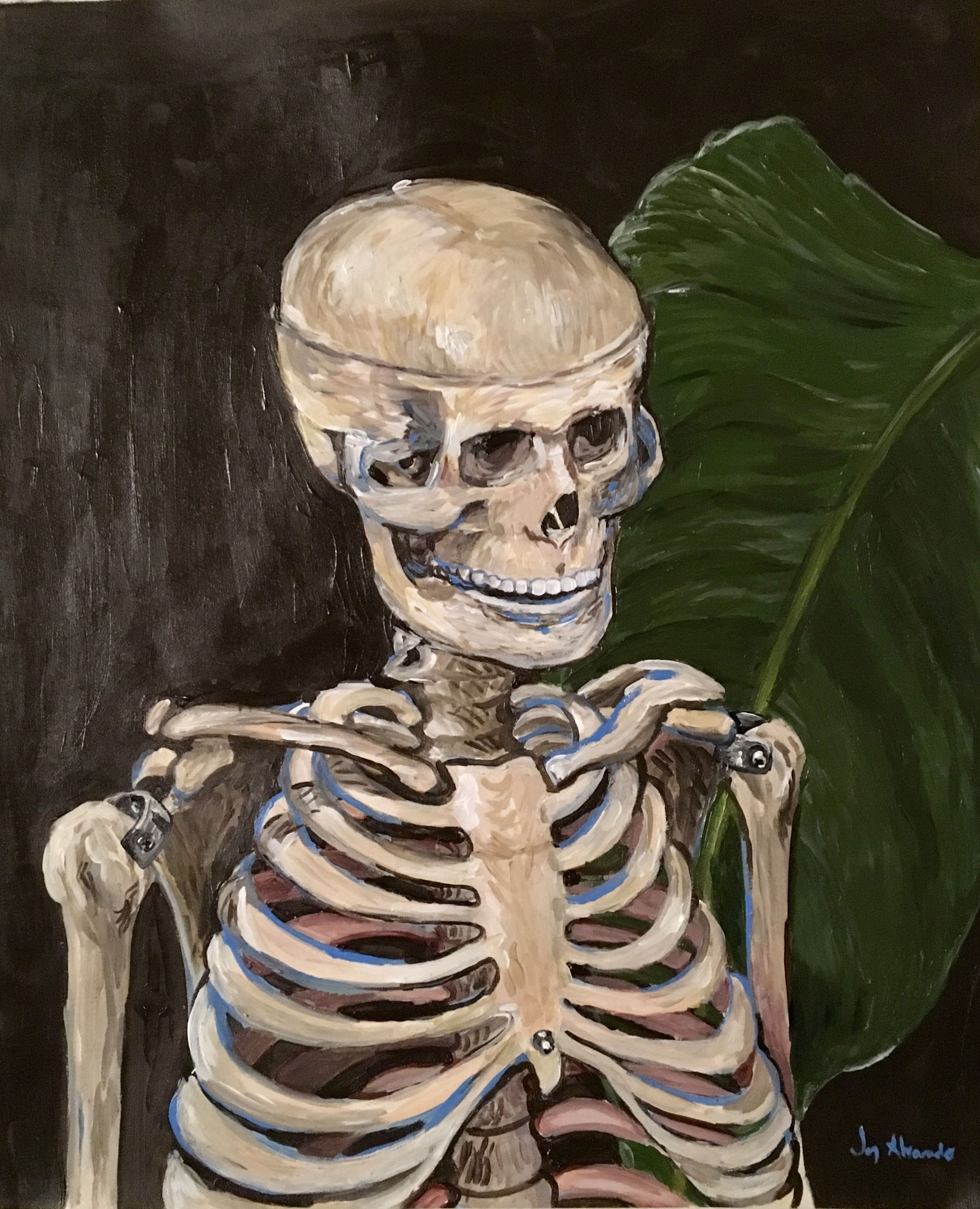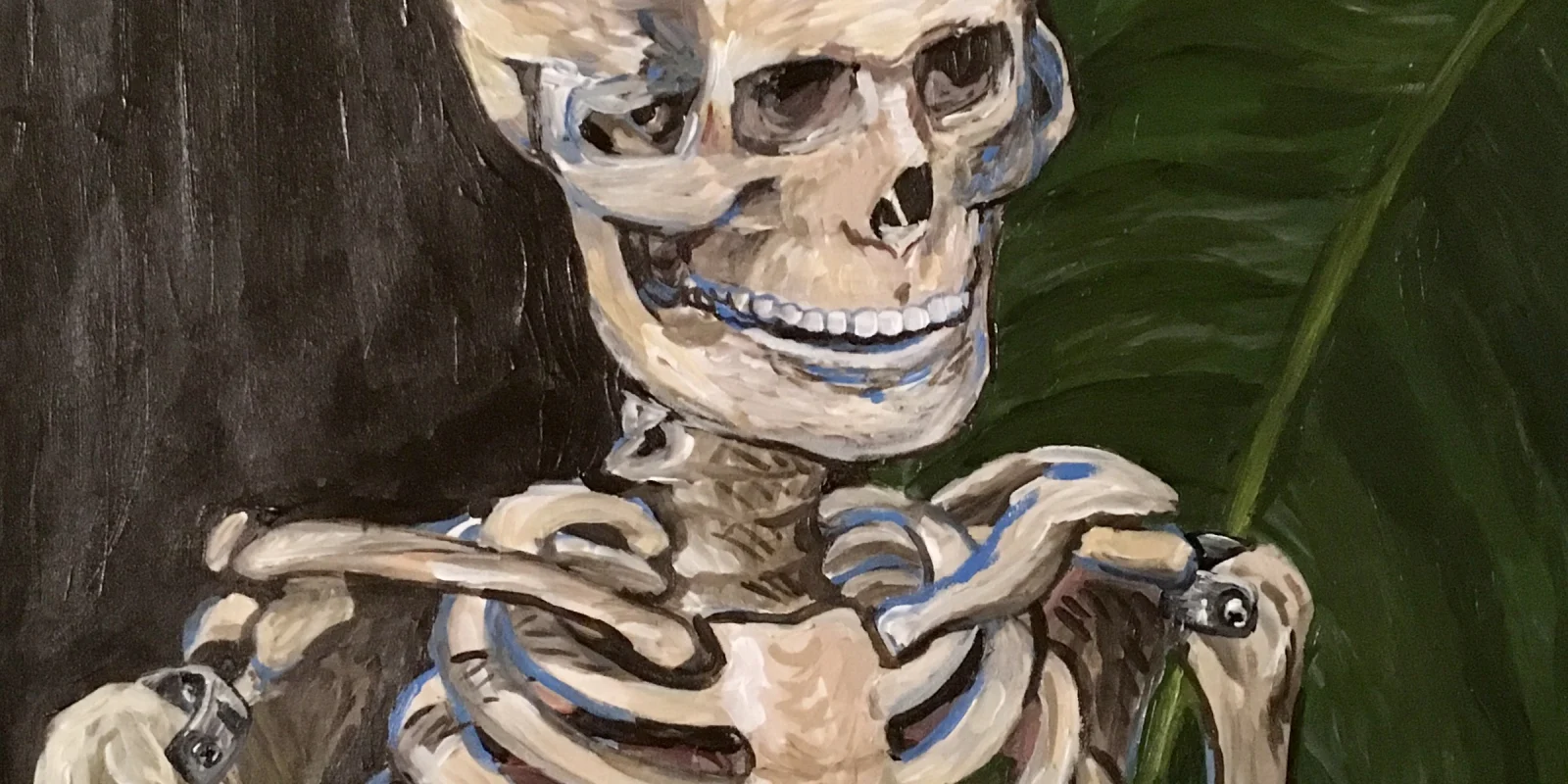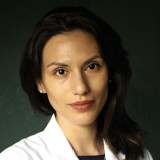This is part of the Medical Humanities series on Op-Med, which showcases creative work by Doximity members. Do you have a creative work related to your medical practice that you’d like to share? Send it to us here.
 What was your inspiration for this piece?
What was your inspiration for this piece?
I initially bought this skeleton to help me study anatomy during the first couple of years of medical school, but it proved to be of assistance long after anatomy class was through. I used it to practice physical exams for the boards, even talking out loud to it and pretending to check its heart beat. I named my skeleton Arthur, after the character Dudley Moore plays in the 1981 movie by the same name. I suppose giving him a name that reminded me of a movie I found delightful made me feel light in the inside — even while I was heavily stressed about exams. To me, "Arthur" represents the loneliness of medical school, and the idea that even I, once a high school prom queen, had to reduce myself to doing physical exams on an inanimate object from lack of having an actual partner available. That I gave him such a comedic name to counter the despair and worry I felt inside becomes a significant little detail to this understatedly wearisome and insular journey toward becoming a physician.
Why did you choose this medium? What interests you about it?
I love oil paints. They are smooth, gliding with ease on the canvas. They also dry slower than other mediums, allowing me to continue working with wet paint for days while I was busy with medical school studies.
How long have you been painting? What got you started? How do you relate it to your medical practice?
I have been drawing since childhood and painting since 2005. My mother took several art courses in college, inspiring me to try creating my own masterpieces as a child. As a medical student and resident, artwork has become a staple of my stress-relief methods. It helps me to connect with others. I love doing commissions. Putting forth energy toward making people happy with creativity is a nice, purposeful, and fulfilling reprieve from medicine.
Is there anything else you'd like to tell us about your involvement in or views on arts in medicine?
Understanding humanities is incredibly important toward serving others. Emotions, intentions, beliefs, motivations; all of these important tenets of human existence should be entertained and considered in the treatment of people's ailments. Most of medicine does not rely on medicines at all — but rather the science of understanding people. Studying art and the intentions of artists will enable physicians to genuinely understand how to best treat their patients.
Joy Alvarado holds a Bachelors of Arts in English from the University of Texas at Austin, a Masters of Health Science from Johns Hopkins Bloomberg School of Public Health, and a medical degree from the University of Texas Rio Grande Valley School of Medicine. She is a Captain in the US Army and a family medicine resident at the Carl R. Darnall Army Medical Center. She enjoys writing and oil painting.







